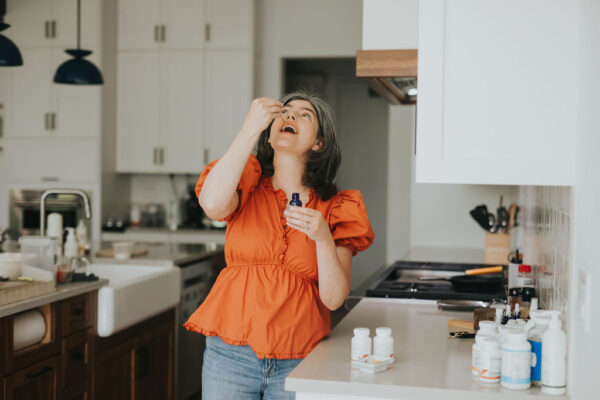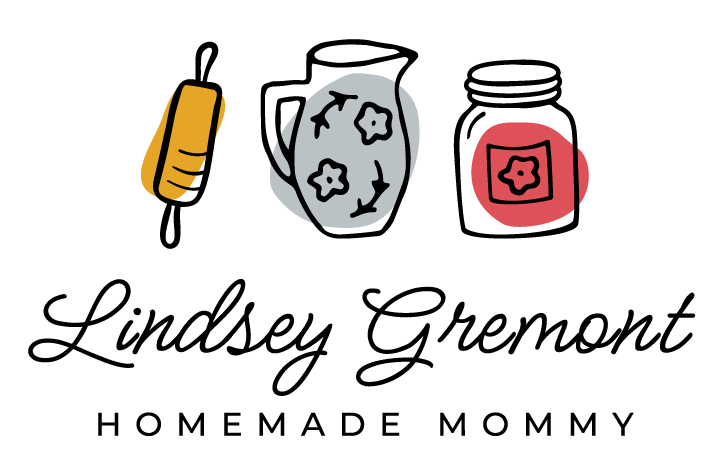How Toxins in Your Home Mess with Your Hormones

My Perimenopause Wake-Up Call
Ever had those days where everything feels like an uphill battle? That was me not long ago. At almost 50, I was already dealing with perimenopause throwing my hormones into chaos—hot flashes out of nowhere, energy levels crashing by mid-afternoon, and moods that left my family wondering who’d taken over mom’s body. I figured this rollercoaster ride was just my new normal until I discovered something that changed everything.
The Hidden Hormone Saboteurs in Your Home
Turns out, while my hormones were naturally changing, I was unknowingly making things worse with what I had around my house. Those innocent-looking products? They were hormonal hand grenades.
Air Fresheners and Fragrance Products
I’ve always had asthma, which actually turned out to be a blessing in disguise. Those air fresheners everyone else used? The plug-ins? Scented candles? They all triggered my breathing issues, so I avoided them completely.
These products contain phthalates that mimic estrogen in your body—the last thing you need when your hormones are already doing a tango without your permission! Studies have shown these chemicals can trigger weight gain, disrupt menstrual cycles, and worsen PMS and perimenopause symptoms. That “fresh linen” scent might smell nice, but it’s throwing your estrogen-progesterone balance into chaos.
Household Cleaners That Clean Your House But Dirty Your Hormones
Those bright blue window cleaners, powerful bathroom sprays, and lemony-fresh counter wipes? Most conventional cleaners contain endocrine-disrupting chemicals like triclosan, parabens, and glycol ethers. These substances interfere with thyroid function—crucial for energy, metabolism, and mood regulation.
When I started investigating my exhaustion, I discovered the very products I was using to keep my family healthy were disrupting my hormonal balance. That weekly deep-clean was actually flooding my system with chemicals that mimic, block, or interfere with natural hormone processes.
Personal Care Products: Beauty Shouldn’t Come at a Hormonal Cost
The average woman uses 12 personal care products daily, containing nearly 168 different chemicals. Many shampoos, body washes, lotions, and cosmetics contain parabens, chemical sunscreens, and synthetic fragrances that act as xenoestrogens—foreign compounds that mimic estrogen.
For those of us in perimenopause, these additional estrogen-mimickers can worsen symptoms like hot flashes, night sweats, and mood swings. Even for younger women, these disruptors can lead to estrogen dominance, contributing to conditions like endometriosis, fibrocystic breasts, and increased PMS symptoms.
Plastics: The Silent Hormone Disruptors
Then there’s the plastic containers I was using daily. The BPA leaching into my food was disrupting my already fragile thyroid function. No wonder I felt like I was swimming through molasses most days—and here I was blaming it all on age and perimenopause!
But it’s not just BPA. Even “BPA-free” plastics often contain replacement chemicals like BPS and BPF that research shows may be just as harmful. These compounds seep into food—especially when heated or when storing acidic foods like tomato sauce—and can interfere with reproductive hormones, thyroid function, and metabolic processes.
Those convenient plastic water bottles? They’re slowly dripping hormone-disrupting chemicals into your hydration system. And don’t get me started on plastic food storage containers, plastic-lined canned foods, and plastic coffee makers.
Non-Stick Cookware and Food Packaging: Convenience with Consequences
The non-stick pans I used daily were releasing PFCs (perfluorinated chemicals) when heated—compounds linked to thyroid disease and fertility issues. Similarly, microwave popcorn bags, fast food wrappers, and pizza boxes often contain these same chemicals, which transfer to food and eventually disrupt your endocrine system.
Conventional Mattresses and Furniture: Your Sleep Space Could Be Hormone Hostile
Many conventional mattresses, couches, and cushions contain flame retardants that build up in body fat and disrupt hormonal function. These chemicals (PBDEs) have been linked to thyroid problems and reproductive issues. The very place I was trying to rest and recover was silently contributing to my hormonal havoc.
Beyond Perimenopause: Why This Matters for Everyone
What really concerns me is seeing younger women dealing with these issues too. Girls hitting puberty earlier than ever, young moms struggling with infertility or hormonal imbalances. I’m thankful I started making these changes early enough that my daughter didn’t experience early development like so many girls do today. These chemicals are especially dangerous during those critical development windows.
Men aren’t immune either—endocrine disruptors have been linked to declining testosterone levels, reduced sperm quality, and even prostate issues. Hormone disruption is truly a family affair.
Simple Swaps That Made a Difference
My solution wasn’t complicated. I didn’t throw everything out overnight or turn my house into some kind of chemical-free commune. I started small, working with my already asthma-friendly home:
- Switched to essential oil diffusers instead of synthetic air fresheners
- Replaced plastic storage with glass containers
- Transitioned to plant-based, fragrance-free cleaners
- Invested in stainless steel or cast iron cookware
- Chose personal care products free from parabens, “fragrance,” and other hormone disruptors
- Filtered my drinking water to remove contaminants
My house still looks lived-in—because it absolutely is—but at least it’s not sabotaging my hormonal health during this already challenging time.
The difference has been noticeable. My energy doesn’t completely tank by 3 p.m. anymore. My moods have stabilized enough that my family has stopped walking on eggshells around me. I am getting much deeper and more restful sleep and I am not filled with brain fog throughout the day!
Ready to Reset Your Hormonal Health?
If you’re feeling overwhelmed by perimenopause or just want to protect yours and your family’s hormonal health, I understand completely. The good news is you don’t have to tackle this alone. Get my free Thrive Guide – a comprehensive approach to combating everyday toxins with holistic alternatives.
